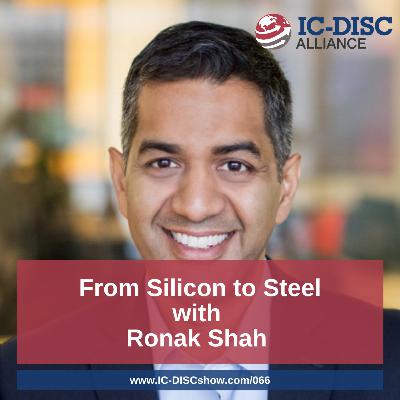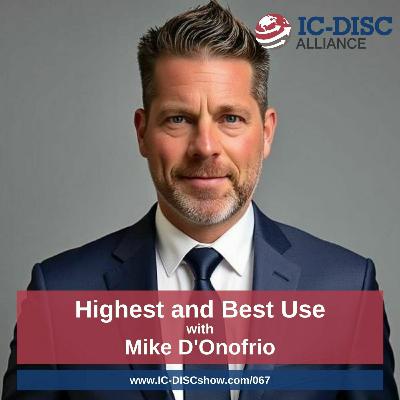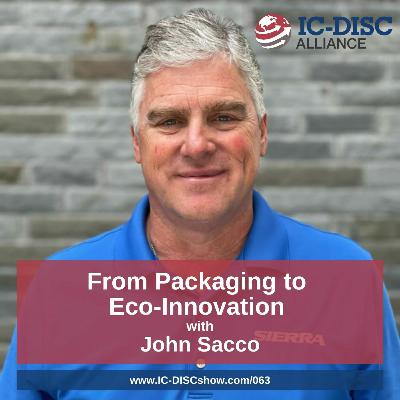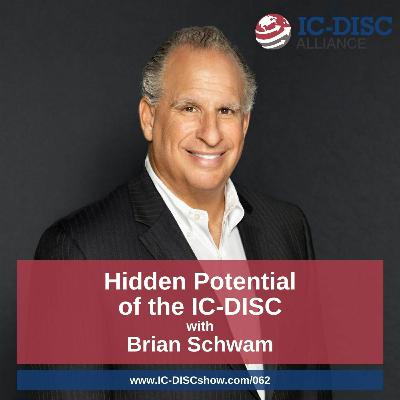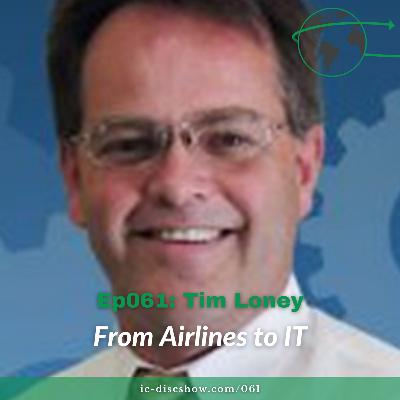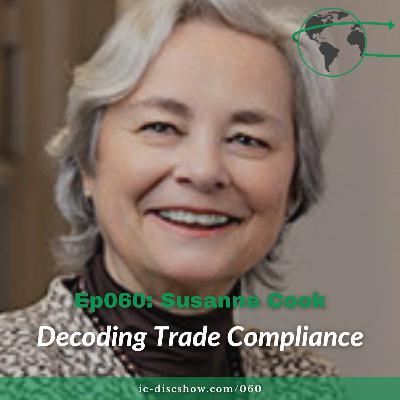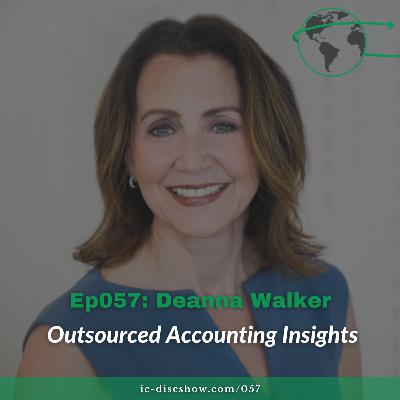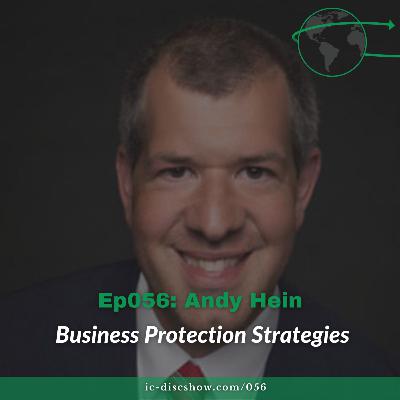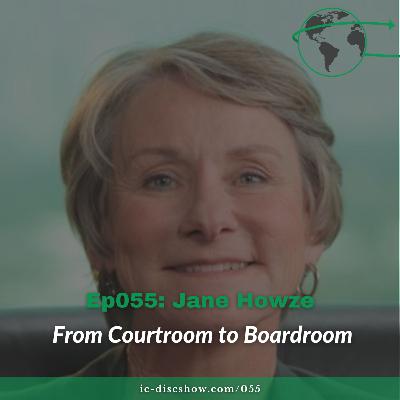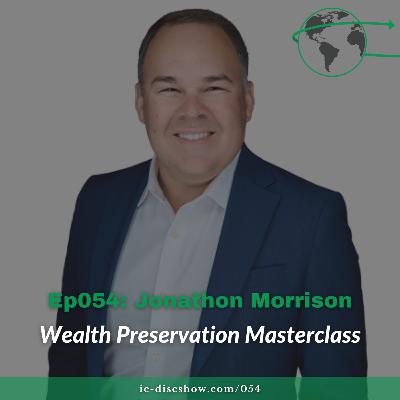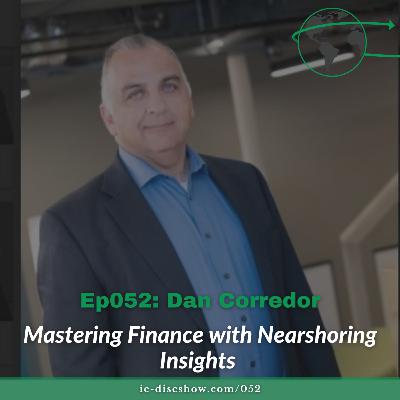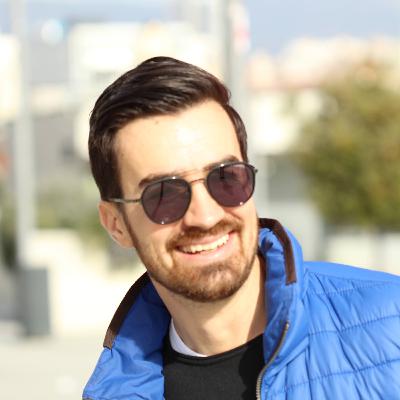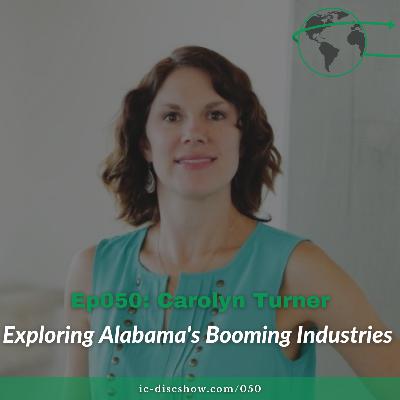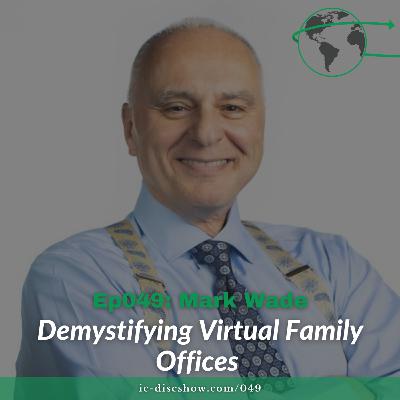Ep066: From Silicon to Steel with Ronak Shah
Description
In this episode of the IC-DISC show, I sit down with Ronak Shah to discuss his transition from a corporate career at Intel to entering the scrap metal business, to founding a successful scrap metal business in New Caney, Texas. We talk about the motivation behind his career shift and the mentors who guided him along the way.
Ronak opens up about the challenges he faced while transitioning from a large corporate environment to a smaller, more hands-on business.
We also explore Ronak's decision to sell his business and the unexpected opportunities that arose from that choice. He reflects on the experiences gained throughout his career, emphasizing the importance of taking calculated risks and adapting to change. His story offers insights into the value of connecting past experiences to current ventures, even when the path isn't always straightforward.
Finally, we discuss navigating today's fast-paced digital world and the importance of maintaining a low profile on social media. Ronak's journey highlights the balance between professional growth and personal fulfillment, making this episode a thoughtful exploration of entrepreneurship and resilience.
<iframe width="560" height="315" src="https://www.youtube.com/embed/VZdpy09Tdds?si=FuPbgjyymyw_uw17" title="YouTube video player" frameborder="0" allow="accelerometer; autoplay; clipboard-write; encrypted-media; gyroscope; picture-in-picture; web-share" referrerpolicy="strict-origin-when-cross-origin" allowfullscreen></iframe>
SHOW HIGHLIGHTS
- I explore Ronak's remarkable transition from a corporate role at Intel to establishing a successful scrap industry business in New Caney, Texas, emphasizing his desire for more tangible work and the influence of key mentors.
- The episode delves into Ronak's career progression at Schnitzer Steel and Alter Trading, where he gained critical insights in non-ferrous recovery and learned the importance of agile, smaller teams in driving technological advancements.
- Through journaling and introspection, Ronak clarifies his professional desires, leading to the creation of Levitated Metal and reflecting on personal challenges, including his late wife's battle with cancer.
- We discuss the financial strategies Ronak utilized in his entrepreneurial ventures, such as leveraging IC-DISC tax advantages and aligning financial decisions with personal values.
- The conversation highlights Ronak's leadership insights, his decision to pursue a smaller business for personal fulfillment, and the impact of selling his business on both his professional and personal life.
- Ronak shares reflections on his entrepreneurial journey, touching on the lessons learned from his career, the importance of taking risks, and the role of hindsight in connecting the dots of his experiences.
- The episode concludes with a discussion on navigating the complexities of the modern digital landscape and the importance of maintaining a low profile in a rapidly changing social media environment.
Contact Details
LinkedIn - Ronak Shah
LINKS
TRANSCRIPT
(AI transcript provided as supporting material and may contain errors)
Dave: Hi Ronak, how are you today?
Roank: Good David, Nice to see you again.
Dave: Likewise, and where are you calling into from? Where are you in the world at the moment?
Roank: I'm at my factory in New Caney, Texas, just a little bit northeast of Houston Great.
Dave: Now are you a native Houstonian.
Roank: I'm not, so I moved out here in 2019 to build this factory and start this business. I think I've been to Houston once in the prior year to visit for the first time and never before, other than perhaps through the airport. So, I didn't know a lot about Houston. I'm not saying that I know a lot about Houston now, but it's been a great place to build a business. It's been a fine place for my kids to grow up.
Dave: It's been good it's been a fine place for my kids to grow up. It's still good. Yeah, it's. Uh, it's kind of a, it's kind of a hidden gem in a lot of ways. Uh, you know houston is, it's got a lot going for it that if your only experience is just driving through town or going through the airport, you know, I mean you hear traffic, humidity, heat, urbanl and you're just kind of like, you know, yeah, it doesn't sound like my kind of place.
Roank: Yeah, well, it would be a lot more believable if you did not have a Breckenridge background behind you.
Dave: True, yeah, that is the Breckenridge background for sure. So where did you grow up then, if you didn't grow up in Houston?
Roank: I grew up in upstate New York so my dad was one of the many immigrants that came over in the late 60s, early 70s. They were looking for people with medical training and background. So he came over from India, lived in New York. I was born in New York City but very soon after grew up in the middle of the Finger Lakes. We moved to Syracuse when I was in middle school and then I went to Boston for undergraduate and I bounced kind of between Boston and London and back to Boston, then to Portland, oregon, which is where I came into the scrap industry and lived for some time in St Louis. I lived there for about nine years and from St Louis to here.
Dave: Okay. So what made you get into the scrap business if you didn't have a family history in it?
Roank: Yeah, it was just very random, my interest in the scrap industry.
I think, the truth of the answer is probably the more interesting one. So after mba I was working, I was an operations guy and I was working at intel corporation in portland, near portland oregon, and loved being in portland. It's a fine place to live. But intel was, I mean, a huge company, right, 80 000 people, and just like the process of making something that was about this big, the the size of the core diet, multiprocessor, microprocessor this wasn't sufficiently interesting to me and I was too far from it, as well as my chain organization. Yeah.
It didn't feel tangible enough, and so that was one part of it. But then the other part of it as well was you know I was there as a worker bee, you know, in a reasonably senior job for someone of my age, but then, you know, in a reasonably senior job for someone of my age, but then you know intel was having difficulty. So they bring in bane and company to kind of work on strategy or whatever and so two of the guys that I went to school with that, I knew well, were like literally working literally seven layers in the organization above me, and I'm like what?
and so I just hit that, I tapped out, I extracted, I was like this is just some horse crap. I, this isn't the place for me. I need to go somewhere where I'm, you know, in a, in a smaller pod, where I can really touch and feel a thing. And so I just started throwing resumes out and wound up at Schnitzer Steel. Now really, yeah, and oh really.
Yeah, and it was great. It was a time of transition for Schnitzer. I don't know if it was a great transition time for Schnitzer. They were transitioning from an older style scrap company to a more professional slash corporate company of the style that it is today. So they had parts of the parts of their business were both things and for sure I liked the old thing a lot and just tons of fun being in places like Boston and Portland scrapyard when they were building big mega shredders and new factories and driving the continuous improvement process there and trying to get metrics around things. It was really a good time. I enjoyed a lot of it. I came to Alter Trading in 2010 and that was wonderful right, I owe so much of my career everything I learned everything to the team at Alter, to Jay Rabinovitz and Rob and Michael Goldstein. I learned a lot there. I did a lot of really fun stuff for them that helped transform the company into the highly successful privately owned scrap company it is today.
Dave: Like on the technology

